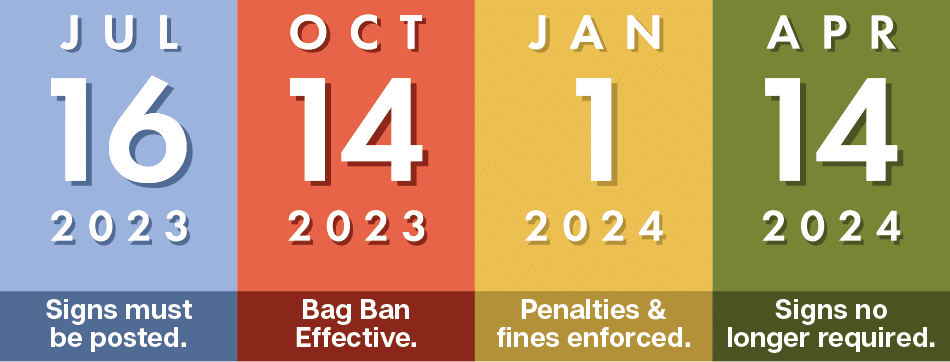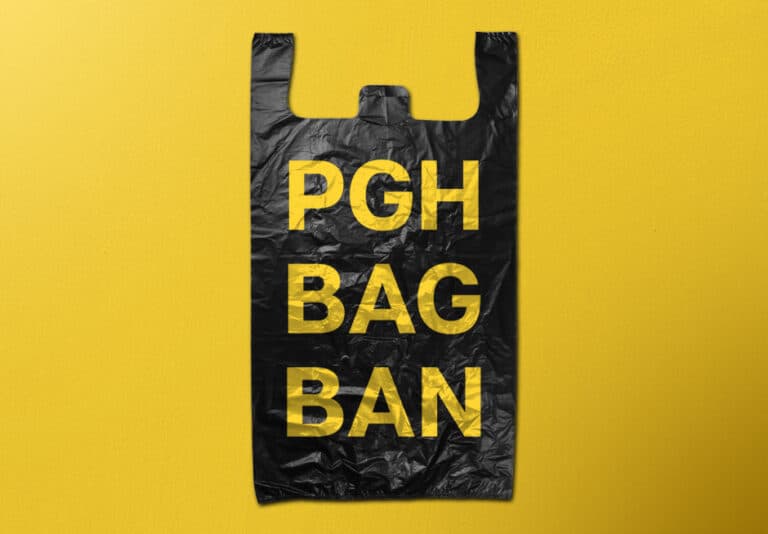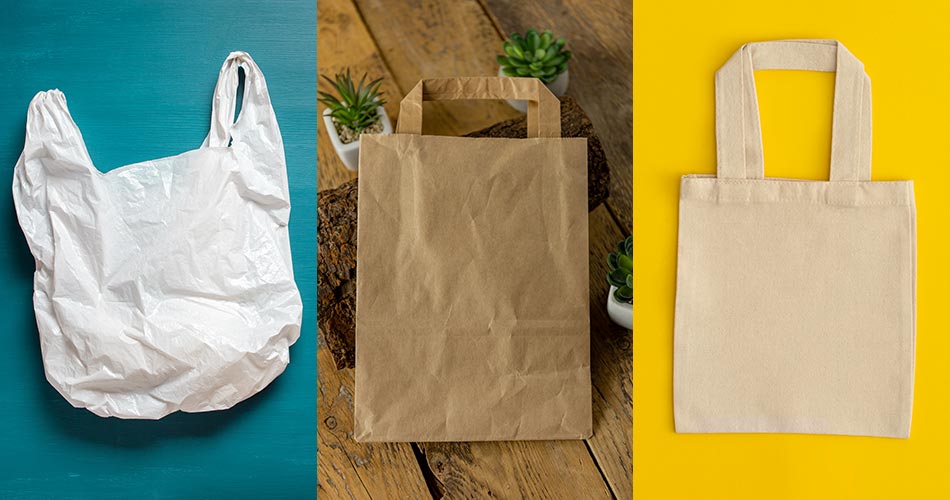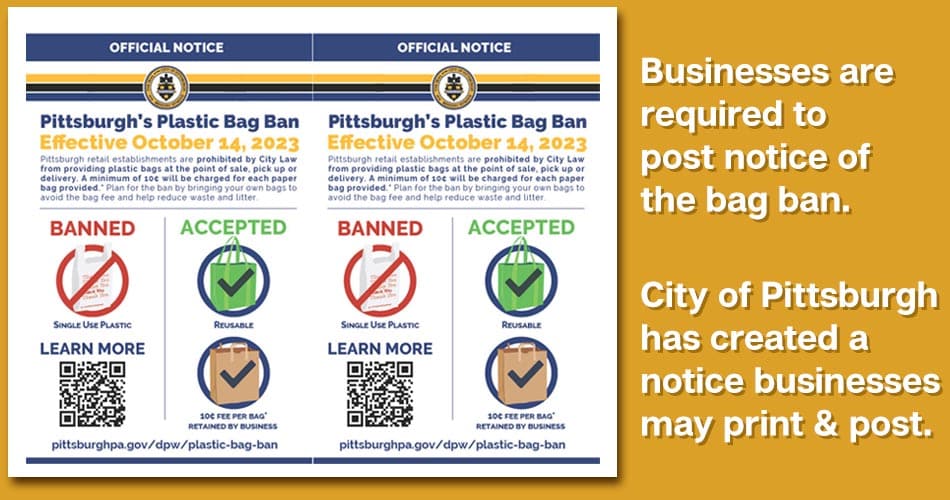In an era where environmental concerns are at the forefront of public discourse, the City of Pittsburgh has taken a step toward reducing its ecological footprint by implementing a Single-Use Plastic (SUP) Bag Ban. This initiative addresses the city’s environmental challenges. It also underscores a commitment to creating a more sustainable future. The Pittsburgh plastic bag ban is a response to the growing concern about the environmental impact of single-use plastic bags. These bags often end up in landfills, littering the streets, or clogging waterways, causing harm to wildlife and ecosystems. By eliminating them, The City of Pittsburgh aims to reduce pollution and promote a cleaner, more sustainable city.
Pittsburgh’s Single-Use Plastic Bag Ban makes it illegal for retailers to distribute single-use plastic bags to customers at checkout. Instead, businesses are encouraged to provide or sell reusable bags, recyclable paper bags, or compostable bags as alternatives.
SUP Bag Ban’s Obscure Effective Dates

“Beginning eighteen (18) months after the effective date, retail establishments are prohibited from providing a single-use plastic bag or a non-recycled paper bag to a customer at the retail establishment or through a delivery.”
The date defined in the code as the “Effective date” is 4/17/2023. 18 weeks after this date would indicate a 10/17/2024 ban start date* Note: These dates are subject to revision and will require ongoing verification.
*Chart may be affected by the unclear start date
Who Will This Affect?
The ban applies to all retailers within the City of Pittsburgh where food or other retail products are sold.
Supermarkets, Convenience stores, Department stores, clothing stores, restaurants, cafeterias, festivals, food trucks, and delivery services. etc.
Possible Negative Consequences
While the Pittsburgh Plastic Bag Ban is primarily aimed at promoting sustainability and reducing environmental harm, it’s essential to acknowledge that businesses, especially smaller retailers, may face certain challenges and negative implications as a result of the ban. Here are some potential drawbacks for businesses:
- Cost Increase: Businesses may experience a cost increase when transitioning to alternative bag options like reusable or paper bags. These alternatives can be more expensive than traditional plastic bags, especially for smaller businesses with tight profit margins.
- Consumer Resistance: Some customers may resist the change and find it inconvenient to carry reusable bags, or pay for paper bags. This resistance could lead to a decrease in customer satisfaction and potentially result in lost sales.
- Supply Chain Challenges: Businesses may encounter difficulties in sourcing eco-friendly bags or ensuring a consistent supply. This could lead to inventory issues and operational disruptions.
- Additional Training: Employees may need training on how to handle and promote reusable bags effectively, which can incur training costs and time.
- Marketing and Branding Adjustments: Businesses may need to invest in rebranding and marketing efforts to align with the ban and emphasize their eco-friendly practices, which can require resources and time.
- Compliance Costs: Ensuring compliance with the ban’s regulations and reporting requirements may involve administrative and legal costs for businesses.
- Loss of Competitive Edge: If a business fails to adapt to the ban or communicate its sustainability efforts effectively, it may lose its competitive edge in a market increasingly driven by eco-conscious consumers.
- Consumer Perception: If businesses do not handle the transition well, it can negatively impact their reputation among environmentally conscious consumers.
- Potential for Increased Shoplifting: Some businesses may worry that the absence of plastic bags might lead to an increase in shoplifting if it becomes easier for individuals to conceal items.
- Variability in Bag Quality: The quality and durability of alternative bags can vary, and businesses may receive complaints if the bags they provide are not up to par.
Compliance with the Pittsburgh Plastic Bag Ban
- Single-use plastic carry-out bags can no longer be distributed by retailers within the City of Pittsburgh at checkout, pick-up, or for delivery orders.
- Paper Bags MUST contain over 40% post-consumer recycled content with no old-growth fiber.
- A minimum fee of $0.10 MUST be charged for paper bags that meet these requirements.
- All fees are retained by the seller. Verbiage of receipt: “carry-out bag charge.”
- Any business that accepts vouchers or EBT benefits cards may not collect paper bag fees.
- The city is considering a “drawdown” time for businesses to exhaust their current supply of plastic bags until January 1, 2024. They advise the public to check back into the City of Pittsburgh website at a later date for updates.
- Fines
- Initial violation: Warning
- 2nd violation: $100
- 3rd violation: $250
Signage 
- Businesses are required to post notice of the plastic bag ban at ALL points of sale.
- Must be posted
- 90 days prior
- For 6 months after the effective date (Oct. 14th).
- 8.5 x 11 in. Download / Printable image here: https://pittsburghpa.gov/dpw/plastic-bag-ban
Exemptions to the Pittsburgh Plastic Bag Pan
The Pittsburgh plastic bag ban starts at the register, any bags used to move goods to the register are exempt.
- Bags used to package bulk fruit, vegetables, nuts, grains, or candy.
- Bags used to contain wrap meats or fish, unwrapped prepared foods, bakery goods, flowers, newspapers, dry cleaning, or similar items.
- Bags used to package medications distributed through a pharmacy.
- Bags sold in packaging containing multiple bags packaged together
- Food storage bags (e.g. Ziplock), Garbage bags, Pet waste bags
The City of Pittsburgh’s Action Plan
The City of Pittsburgh plans to:
- Create drop-off and pick up sites for individuals to donate their surplus reusable bags at key locations such as grocery stores, community centers, and libraries.
- Launch an awareness campaign to inform local residents of the policy change through local partners and social media within the first 15 months from the effective date.
- The Department’s Office of Sustainability and Resilience is directed to conduct a study to quantify the impact of this policy change. This report will also cover the costs of the city’s administration and enforcement of this program, as well as the success of the pilot bag-sharing program. This data will be made publicly available no later than 2 weeks after its completion on the City of Pittsburgh’s website.
City of Pittsburgh Retail Businesses Need to Get Onboard

For advice on sustainable packaging, or for help with custom branding of your takeout food packaging, contact one of the Packaging Experts at MrTakeOutBags.com 888-321-2248.
Sources & References Regarding the Pittsburgh Plastic Bag Ban
City of Pittsburgh Official Website:
Municipality Code Book – Pittsburgh, PA
Public Education Plan for the Plastic Bag Ban – PDF
Reusable Bag Sharing Program Pilot – PDF






Comments are closed.